Gull poop was piling up at a U.S. submarine homeport. So the Navy unleashed hawks to help
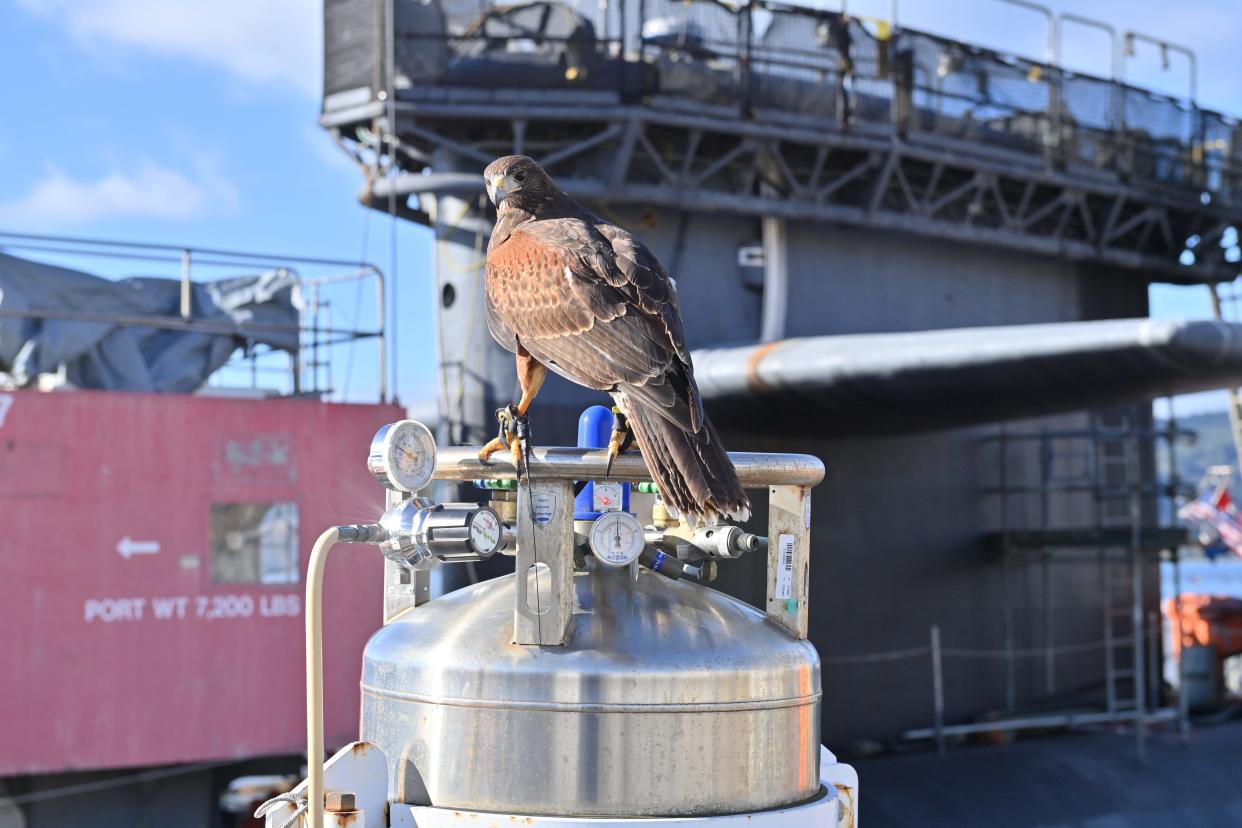
BANGOR — The dockside home of the Navy's No. 1 mission has been beset by seagull No. 2s.
The Hood Canal pier that hosts a majority of the country's ballistic-missile submarines — whose paramount duty is to retaliate against a nuclear attack on the United States — had been recently bombarded with gull poop, soiling the subs, facilities and even the workforce.
"Hotter and drier summers made it horrible to work on the pier," said Ed Ingles, executive director of the Trident Refit Facility, a part of Naval Base Kitsap-Bangor. "We were throwing our hands up, thinking, 'How are we going to solve this problem?'"
That's when the Navy turned to five Harris's hawks named Daisy, Amelia, Marie, Amber and Delta. Their job: make the pier as inhospitable to gulls as the gulls have made it these past few years for the humans.
"It is their presence alone that makes the gulls uncomfortable and keeps them away," said Gretchen Albrecht, a zookeeper-turned-falconer hired by the Navy to help solve the problem. "The gulls poop a lot, and their defense is to poop on whoever's bothering them. But when they see us show up, they take off."
Bangor facility preps for new sub: 'We have to be masters of the craft the day it arrives'
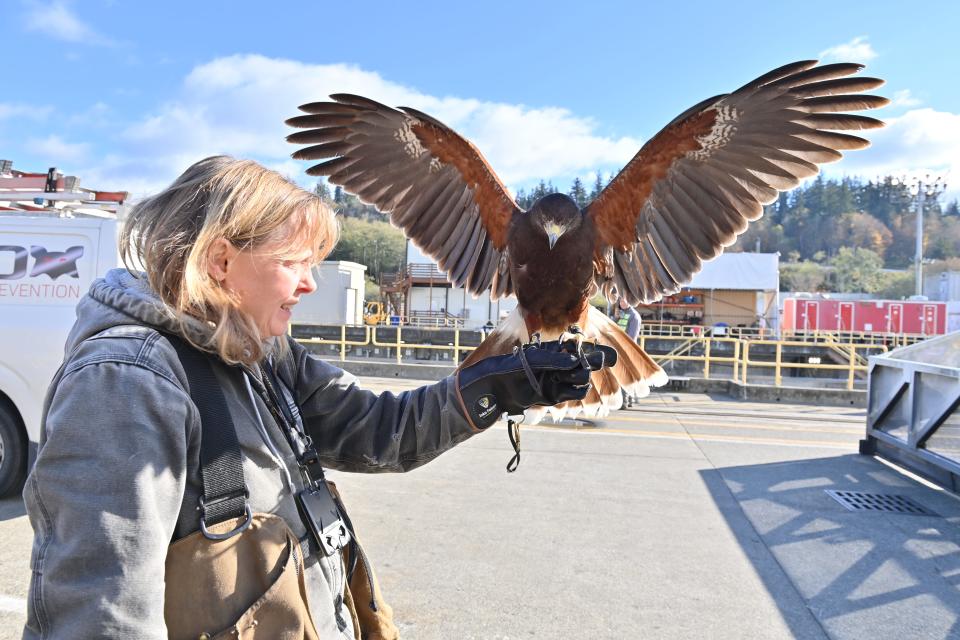
'A crazy idea' turned into reality
Bangor's pier hosts eight of the country's 14 Ohio-class ballistic-missile submarines. Along with bombers and land-based missiles, the submarines promote "strategic deterrence," with the ability to strike back against an enemy with a nuclear attack. Submarines possess the additional advantage of launching missiles from a hidden location underwater.
But starting in 2020, the strategic deterrence mission at Bangor's Delta pier needed a little seagull deterrence.
"The gulls started getting more upset and would take it out on these poor workers down here," said Albrecht, who works for Kennewick-based Inka Falcon.
And that's not all. The birds' feathers would clog up vents, their stench spreading to all corners of the pier named for its shape like the Greek letter.
"It was just obnoxious," Ingles said. "And the problem that was getting worse every year."
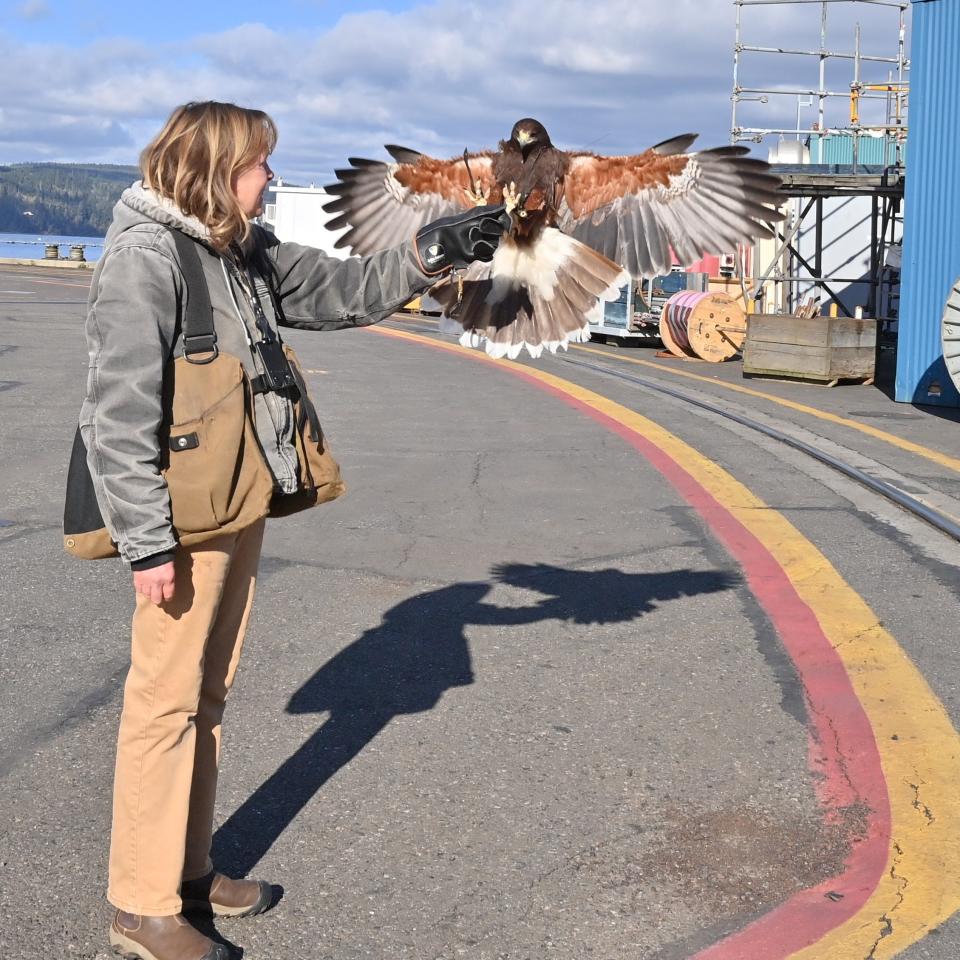
The director of the Trident Refit Facility, whose 2,000 or so employees ensure the Ohio-class submarines are always ready to go to sea, said bringing birds of prey to the pier "sounded like a crazy idea." But they were ready to think outside the box: The Navy's engineering command helped bring falconer candidates to Bangor.
It's not the first time the Navy has called in wildlife for help. This is the same base where, in 2010, the Navy introduced Atlantic bottlenose dolphins and California sea lions to help detect potential underwater terrorist acts.
Albrecht, who once worked at Woodland Park Zoo's raptor center, was hired to help alongside fellow falconer Patrick Portrey. They introduced five female Harris's hawks to go with the federal Department of Agriculture's addling efforts, a process that prevents gull eggs from hatching.
The Harris's hawks aren't meant to actually harm the gulls; their bellies are already full, thanks to a steady diet of quail. Their job is to intimidate them so they hatch their families elsewhere, Albrecht said.
More: New subs and modernized missiles mean new facilities at Naval Base Kitsap-Bangor
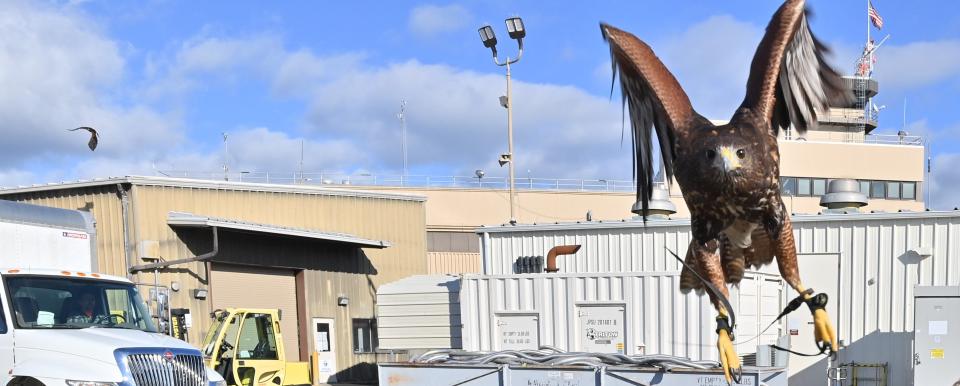
Hawks have adjusted — and have been effective
The hawks' own resume in the abatement business span about a decade, from 10-year-old Daisy to Amber and Delta, who hatched earlier this year. They made good teammates as naturally social birds, Albrecht said. They needed little time to adjust to the hustle and bustle of the pier.
"Within a couple of weeks, they were like 'Yeah, sure, I'll go land on a forklift and a crane,'' she said.
The program has worked, Navy leaders at the Trident Refit Facility say. The gull population has been nearly cut in half in the last two years, Ingles said.
"We've really had good success," Albrecht said.
The gulls are clever. Some of the smartest — and most stubborn — just wait for the day-shift working hawks to depart the dock. But with much of the workforce there during the day, the impact the hawks have made has been substantial, said Mike Hatfield, a spokesman for the refit facility.
Albrecht said it's also been fun to watch as the hawks become a point of pride on the pier. Workers are often eager to chat and watch the hawks in action.
"They bring a smile to their faces," Albrecht said.
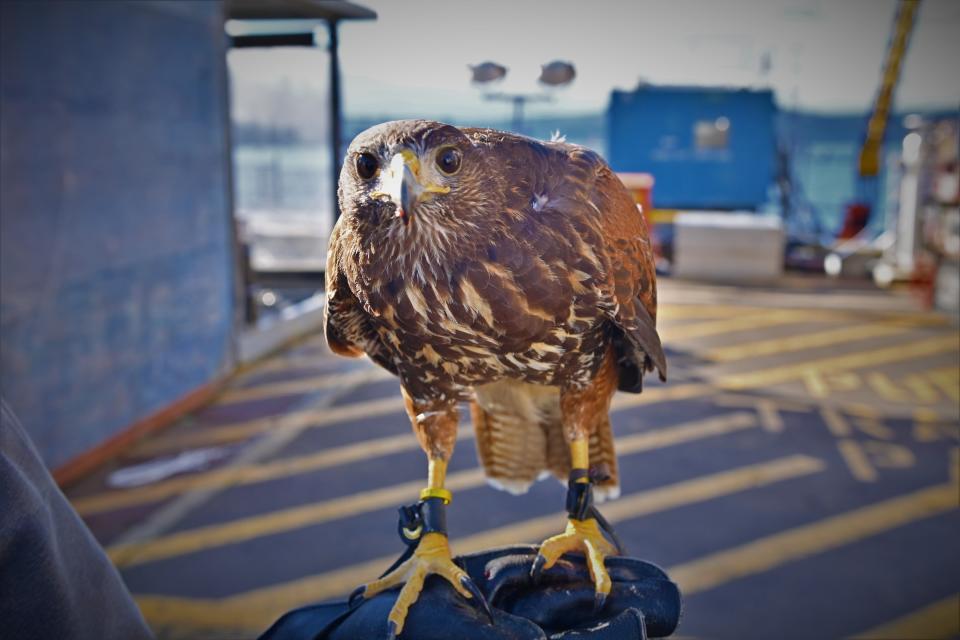
This article originally appeared on Kitsap Sun: Navy calls in hawks to help combat gull poop at Kitsap submarine pier

